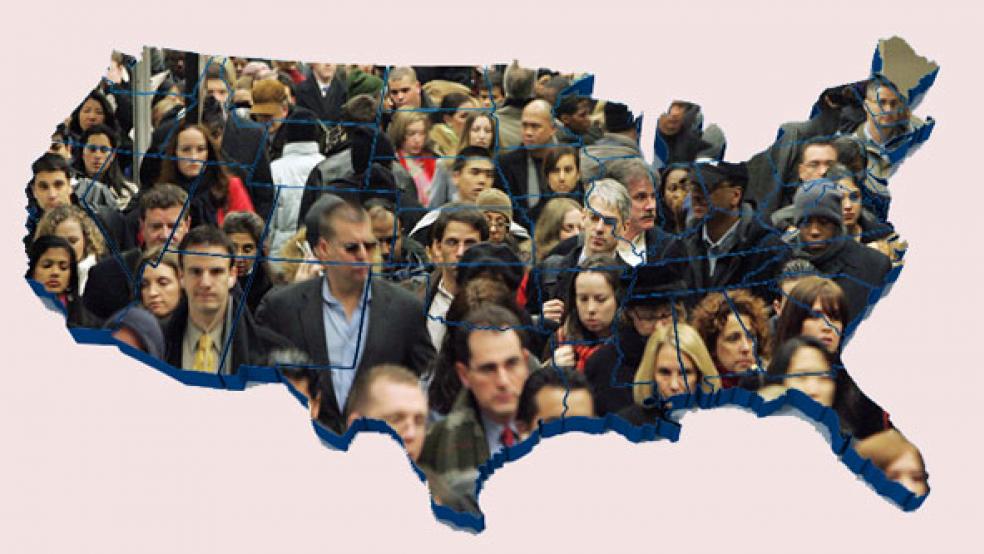With billionaire Donald Trump calling for deportation of illegal immigrants and construction of a 2,000 mile-long wall along the U.S.-Mexican border, immigration reform is the topic de jour of the 2016 presidential campaign.
Yet in state capitals across the country, lawmakers and governors are giving scant attention to new laws and policies for dealing with the immigration problem, according to a recent survey of all 50 states by Roll Call-Congressional Quarterly.
Related: Illinois Is Not Alone: States Facing $1 Trillion Pension Shortfall
Indeed, in only three states – California, Georgia and New Mexico – are immigration issues considered top priority this year by state lawmakers and chief executives.
In California, Democratic state Sen. Ricardo Lara is pushing again for passage of legislation to provide subsidized health care to undocumented immigrants. Georgia lawmakers, meanwhile, are fighting over a Democratic proposal to allow students under the federal Deferred Action for Childhood Arrivals policy to pay in-state tuition instead of more costly out-state tuition to attend George colleges and universities.
And in New Mexico, Republican Gov. Susana Martinez and a GOP minority in the state legislature are fighting to make it more difficult for illegal immigrants to obtain driver’s licenses.
While there clearly is some overlap in interests and priorities, the new study suggests there’s a significant disconnect between what politicians in Washington and in state capitals view as the most urgent priorities of the day.
Related: States Keep Using Gimmicks to ‘Balance’ Their Budgets
“One clear element of state priorities is how different they are from those in Congress,” the CQ-Roll Call analysis of the top priorities of all 50 states concluded. “For example, while education issues are prevalent in the states, it is not an issue that has seized the national agenda in the last year.”
For sure, there has been controversy over the Common Core curriculum on the campaign trail, and Democratic presidential contenders Hillary Clinton and Bernie Sanders are promoting plans to ease the burden of college tuition. But it is not among the issues drawing primary attention.
On Capitol Hill, the Senate and House are attempting to reconcile differences over a renewal of the No Child Left Behind Act, signature legislation of the Bush administration, while President Obama’s ambitious $60 billion proposal to give millions of Americans more affordable access to a community college education was deemed dead on arrival.
In similar fashion, many states are also addressing crime, prisons and marijuana policy to varying degrees, all issues that have not garnered much attention in Congress or on the presidential campaign trail.
According to the survey conducted by 70 reporters in all 50 states and the District of Columbia, five issues that were among the greatest concern of state officials were the budget, education, health care, public transportation and infrastructure.
Related: Anti-Tax GOP Governors Find It Hard to Hold the Line
Despite the improving economy, many states are grappling with budget problems prompted by low oil prices, lawsuits over employee pension programs and inadequate funding for schools. Officials in Alaska, New Mexico, New Jersey, Michigan, Illinois, Louisiana and others are facing massive holes in their budgets because of plummeting revenues or financial crises in their pensions programs.
In oil-rich Alaska, for example, plummeting oil prices combined with long-standing drops in oil production will likely cost the state $3.5 billion of revenue both this year and next. Louisiana likewise is facing a $1.6 billion revenue shortfall this year, while Illinois may be stuck with a $4 billion shortfall in its budget next year if a temporary income tax increase is allowed to expire.
The budget was listed as the Number One issue more often than any other, according to the survey. It ranked first in 10 states and was listed among the top five problems in 23 states.
Public education spending is also a dominant concern of state officials. “From per-pupil spending to school choice systems and the rising cost of college, education issues were the most prevalent overall,” according to the report. Of the scores of issues identified by reporters for this report, one in five was related to education – which was far more than any other topic.
Related: New State Pensions Rules Expose Serious Fund Deficits
With Congress still deadlocked over long-term funding of federal highway and bridge construction, uneasy state officials are facing numerous transportation and infrastructure problems. The states also are dealing with many issues related to health care. One of the biggest controversies for some states is whether to accept an expansion of Medicaid under the Affordable Care Act.
As the report notes, there are also a great many unique issues. Missouri officials, for instance, are consumed by racial tension and clashes between the police and black protesters in Ferguson. Kentucky, meanwhile, is fighting a heroin epidemic. And Oregon is still reeling from the resignation of longtime Gov. John Kitzhaber. And so on.
But it’s not all gloomy. Minnesota is faced with a budget dilemma that many other states would die to have: The state legislature is working on a two-year budget with a projected surplus of $1.9 billion. What to do with all that extra loot?





